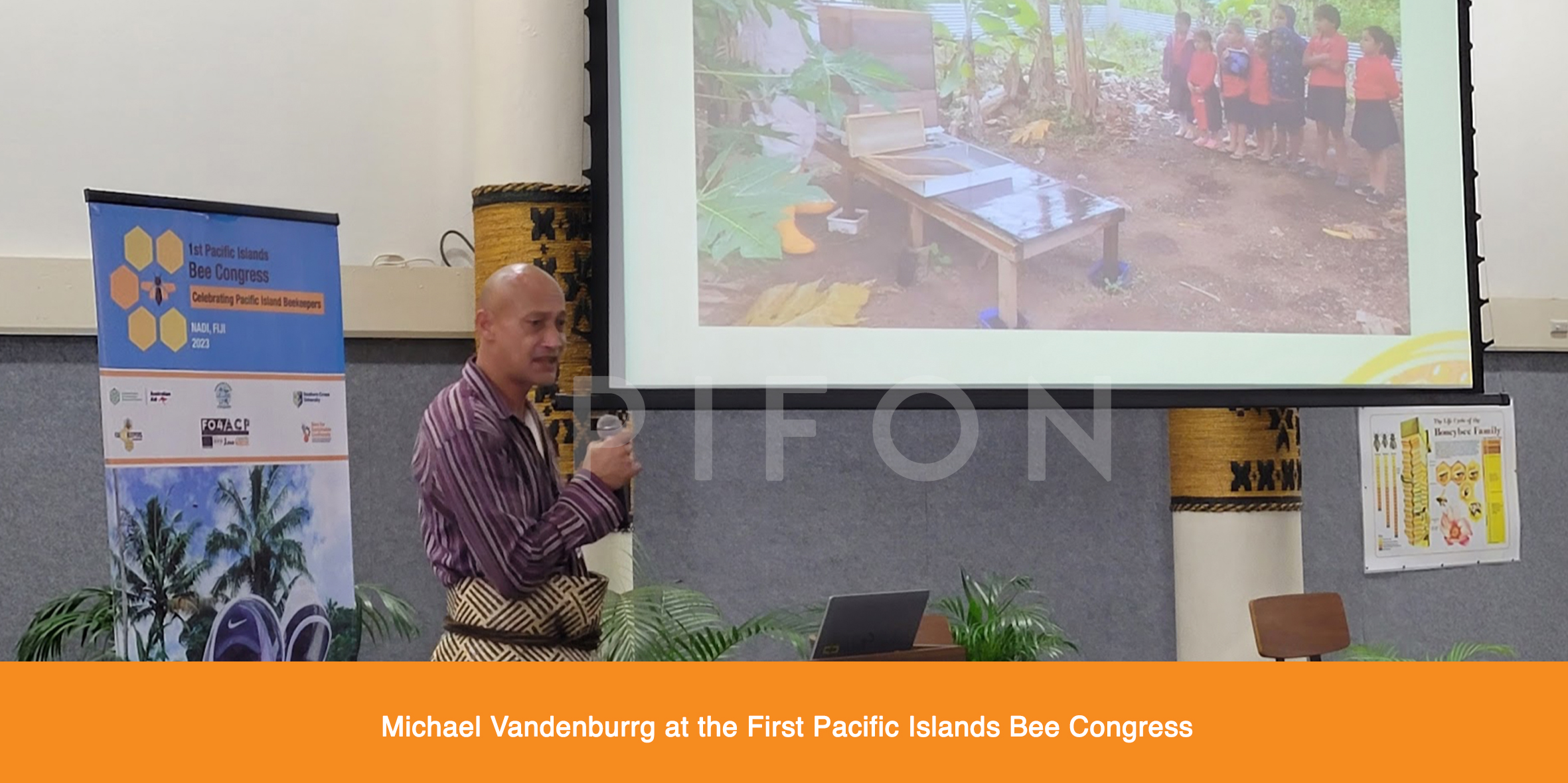b l o g
m a y 2 0 2 3

Presented by Michael Vandenburg, Vice President of Bee Association Tonga and works as a beekeeper with OHAI an organisation dedicated to Climate Change, Mitigation & Adaptation
Introduction
The beekeeping industry in Tonga, a relatively new venture, has faced substantial obstacles due to a volcanic eruption (Hunga Tonga–Hunga Haʻapai) and the lingering effects of the COVID-19 pandemic. Introduced by European settlers in the 1970s, honeybees initially thrived, however, the project was short-lived, leaving Tonga’s beekeepers with limited resources and training opportunities.
Reviving the Industry
Efforts to revitalize the industry were made through virtual training sessions conducted during the COVID-19 lockdown. These sessions, facilitated by local beekeepers and volunteers, proved to be invaluable resources for aspiring beekeepers. Participants were able to receive basic training, access necessary equipment, and seek guidance.
Impact of Natural Disasters
Tonga’s beekeeping industry was not immune to the devastating consequences of the volcanic eruption and subsequent tsunami wave. Smaller islands experienced displacement and the loss of homes, significantly affecting the local beekeeping community. The natural disaster also disrupted the ecosystem, washing away a natural beehive that had perched on a cliff before the tsunami. Remarkably, the beehive has gradually returned to its previous size over the course of a year and a half.
Environmental Awareness and Collaborative Efforts
Stakeholders within the Tongan beekeeping community have been actively engaged in raising awareness about the critical environmental role of bees and the necessity to safeguard them against harmful substances. Training sessions organized by various groups have played a pivotal role in educating beekeepers and the public about these vital concerns.
Challenges Faced and Solutions
Tongan beekeepers face additional challenges, particularly in obtaining new colonies due to the absence of queen rearing facilities. Consequently, beekeepers primarily rely on removing hives from residential properties, offering their services for free. In exchange, homeowners receive a small portion of honey, while the rest, along with the bees, is retained by the beekeepers.
The Aftermath and Recovery
The volcanic eruption not only devastated the beekeeping industry but also caused significant damage to Tonga’s plant life, leading to a substantial loss of forage for the bees. Collaborative efforts, in partnership with experts have been underway to remove hives from homes and properties using a gentle and effective method. This approach ensures the minimal harm of bees during the removal process.
A Challenging Journey Towards Recovery
Rebuilding Tonga’s beekeeping industry has been an arduous journey, with the volcanic eruption serving as a major setback. Nevertheless, the resilience and determination of local beekeepers, and ongoing support from international entities and volunteers, provide hope for the industry’s recovery.
